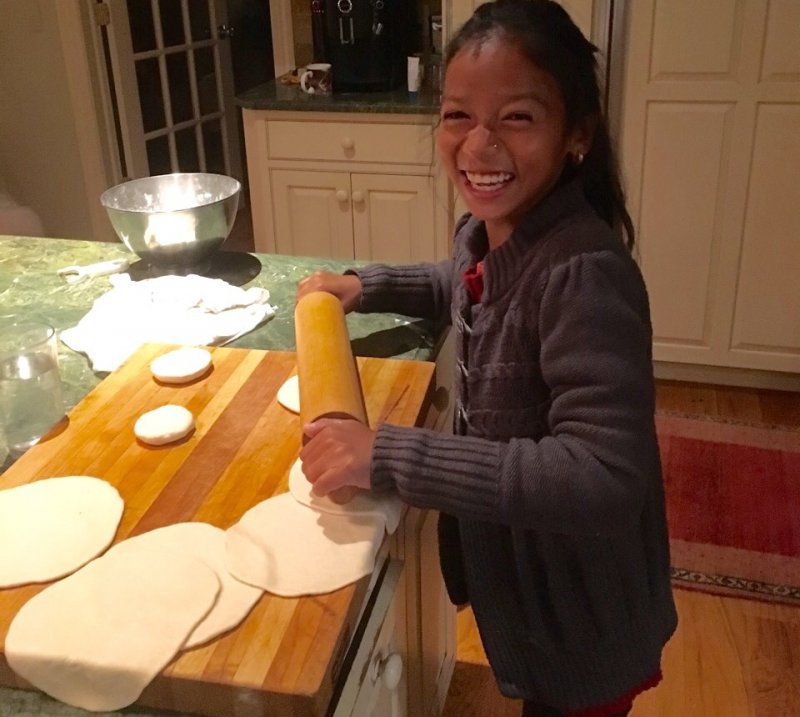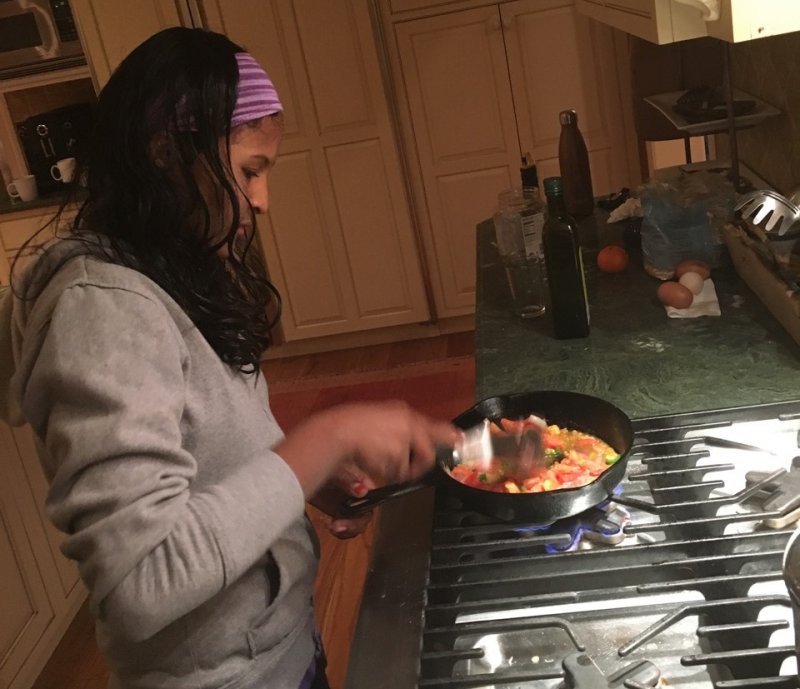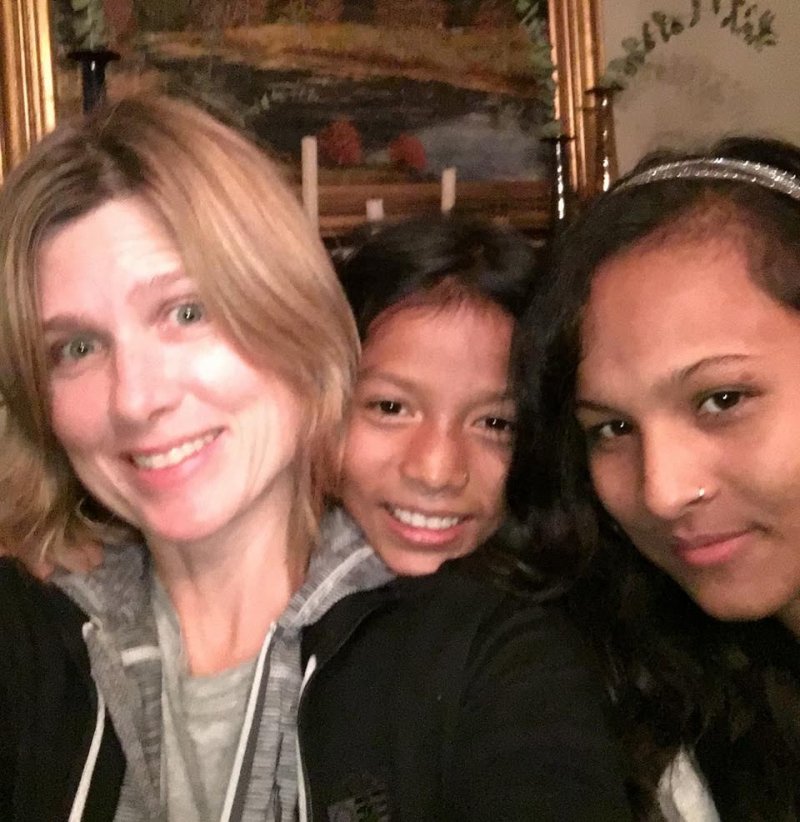They Arrived with Smiles
Saturday, February 27, 2016

Two students from the Kopila Valley School, Sirjana & Jharana, have been studying abroad in the United States for the past few months in conjunction with our partners at She's The First. This journal entry was written by one of our dear friends at BlinkNow who is also their host mom, Megan Sager.
by Megan Sager
They arrived with smiles at my front door, my first surprise as I had been expecting some weariness after 24 hours on planes; after throwing up in the car; after logistical delays and pending visa's; after a tense moment when they were almost turned down at the border. But, never mind, those details had faded. The first thing they did was open their arms for a hug as if we were long lost friends. I couldn’t wait to show them all the things that would surely be new to them—a hot shower, a blow dryer, the inside dog; the clothes sent to them from friends with daughters their age.
What would wonderment look like? I thought to myself as I shepherded them inside and around the house and eventually upstairs to shower. We showed them the faucet, the hot and cold, and clothes that would fit. They disappeared for a while as we heard the tap go on and off, on and off, on and off. So we knocked on the door. “Everything okay?" And we explained it all again.
It turns out that new things like endless hot water are gradually absorbed without much fanfare until several weeks later when Jharana said to me in the kitchen, “I tried to see if I could keep the water cold for a second, if I could take a cold shower again. Oh my gosh, I couldn’t keep it there for even a second!” She was the one who was now mystified by what had once been routine.
On their second night in America they asked to cook dinner for eight of us. We went to the store and they picked out what they needed. Again, no outward expressions of surprise at their very first grocery store—just quiet mental digestion. When we arrived home, Sirjana quickly asked for a bowl and began looking for the peas—it was too early, I said, and she looked concerned. “The peas need to soak for hours,” she said and then I realized they don’t use the frozen variety in Nepal. In fact, they don’t use freezers at all. I reassured her that they would not need to soak them; she was still unconvinced.

When dinnertime rolled around, the girls had taken over the kitchen with ease. I watched with alarm at first as Sirjana started to cut the onion toward her palm but then quickly relaxed when I saw how deftly she worked. Clearly, that knife had been in her hands for years. With five younger siblings, she was the one in charge of dinner. They found the flour and water, the cutting boards, the cumin, the garlic. As I sat down to their meal, it was I that was mesmerized. Two young girls from across the world—new to American appliances (appliances in general), new to our family, new to electricity, new to this world, found their way with the only tools they needed—a knife, fire, and hands—to cook us dinner. Could my children have done the same?

As the weeks go by, they get more used to the change; their perspectives have grown. I press them for information. What were you most surprised about when you got here? I asked the other day. Jharana thought for a minute and she tells me “Houses are very clean and smell really good and most people have their own playground where we can play soccer and basketball. Everything is in order here. And life is comfortable—because if we have to wash dishes, there is a dishwasher. If there is laundry, a washing machine. People are educated and understand everything—and people who are born in America are very lucky.”
When I ask Sirjana about the things she misses most, her answer surprises me. Here, her room at our house overflows with donations of clothes and shoes. Wouldn’t that be a teenage girl’s dream? But alas, she misses her dear school uniform that she proudly wears everyday to Kopila Valley. I realize as she tells me this that American clothes bring the complexities of choice and “fashion identity," a conundrum to a girl who only needs two outfits back home; a place where her school uniform symbolizes the great opportunity to be educated, to further her goals—the only identity that matters.
And finally, I ask them what they love most about Nepal and what they love most about being here. Out of all the new things, new places, and new experiences, the answer to the question was the same.
The people.

Interested in exploring the possibility of hosting one of our students abroad? Join our Host Family Email List.